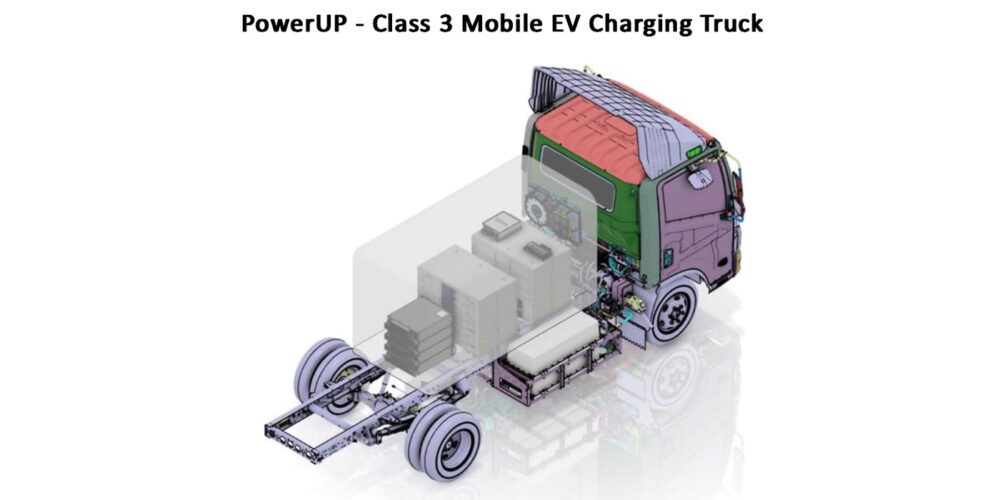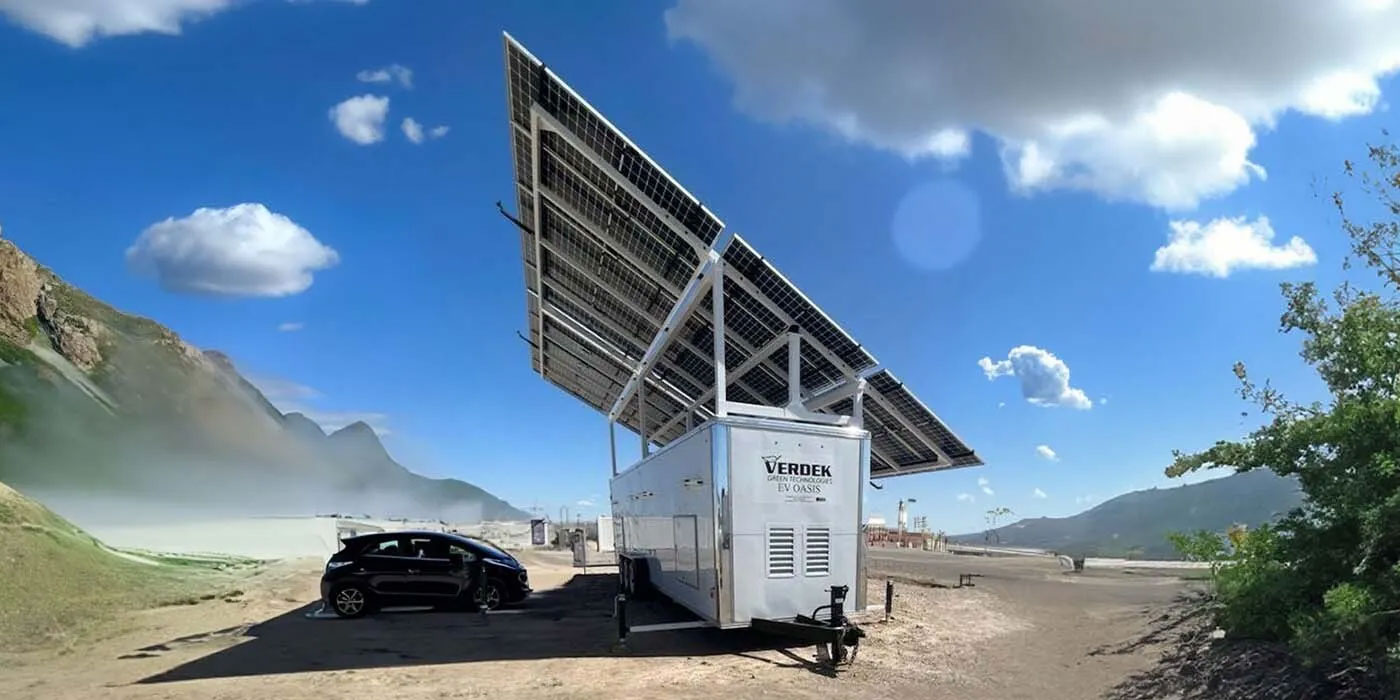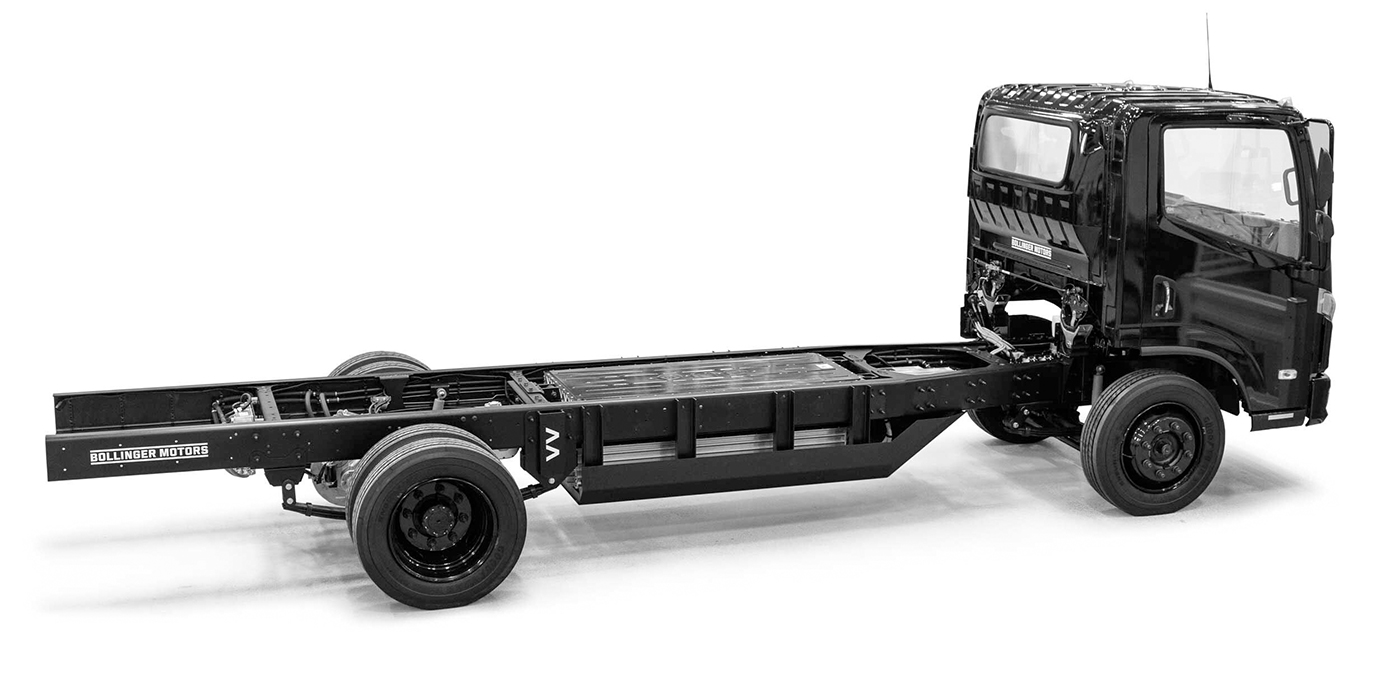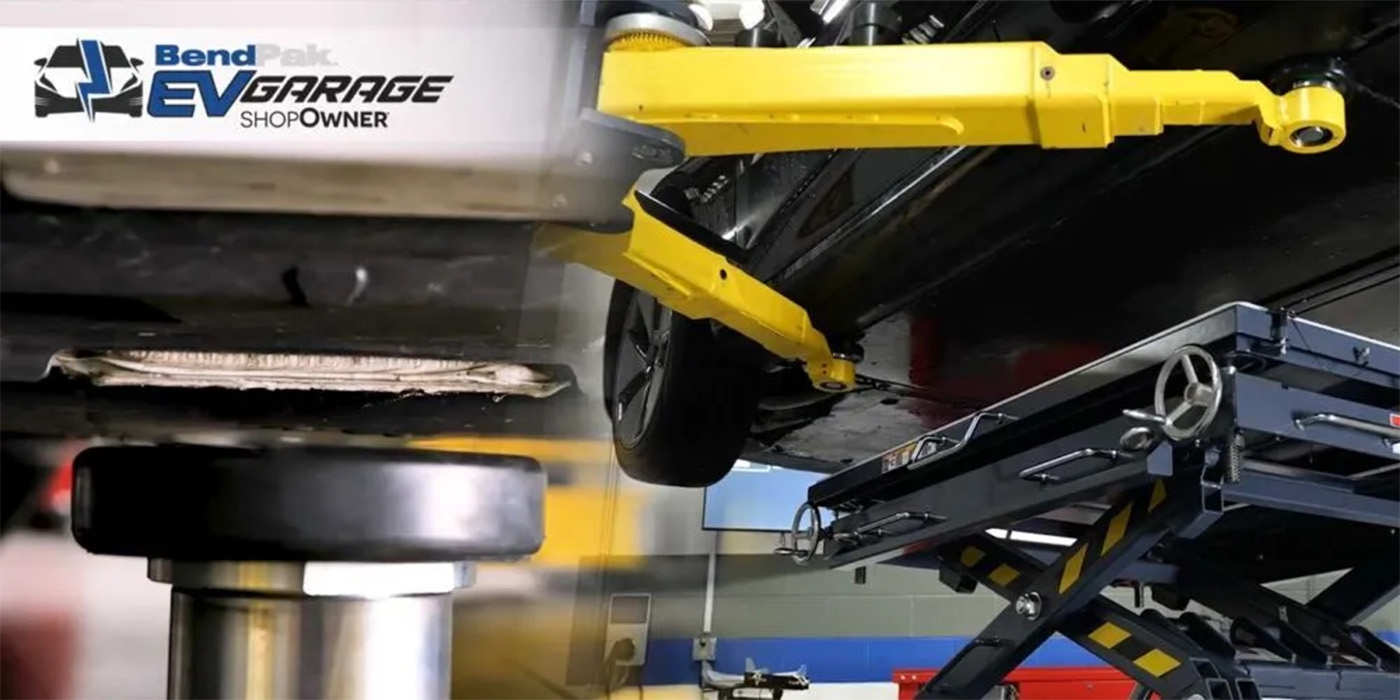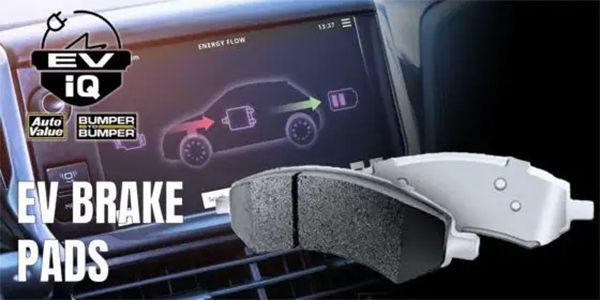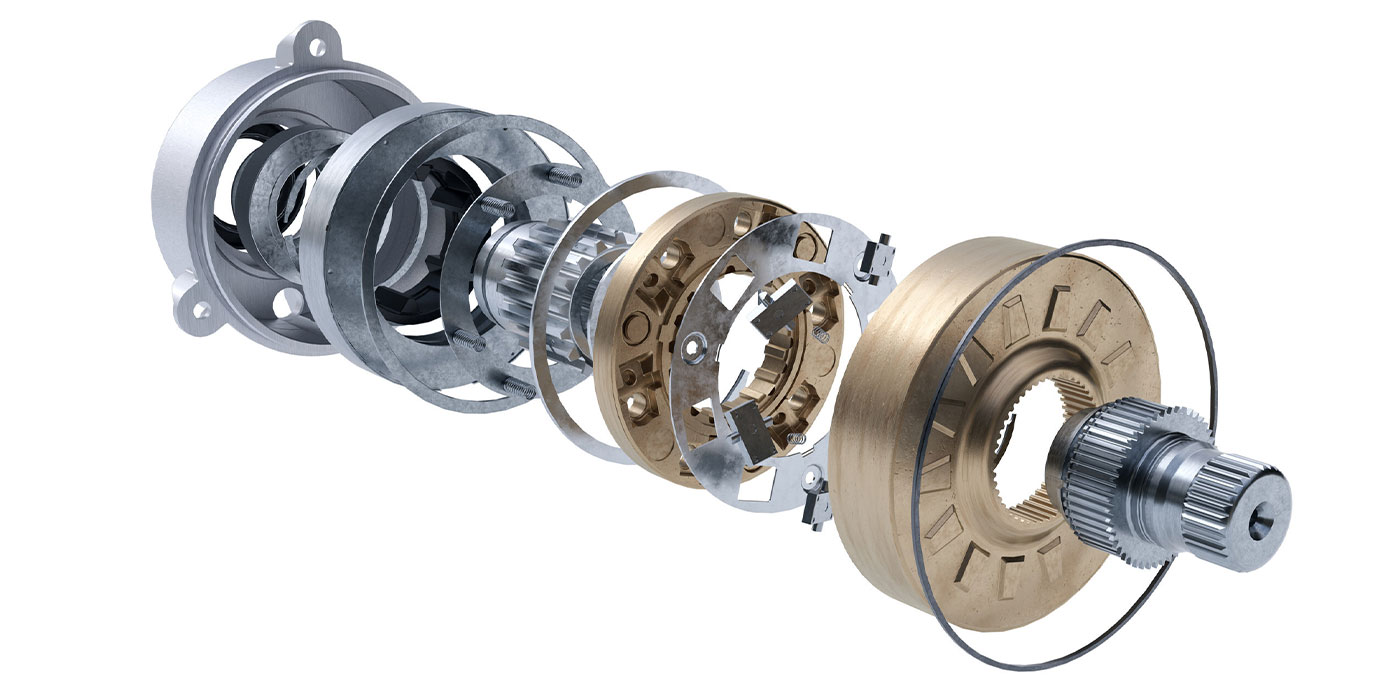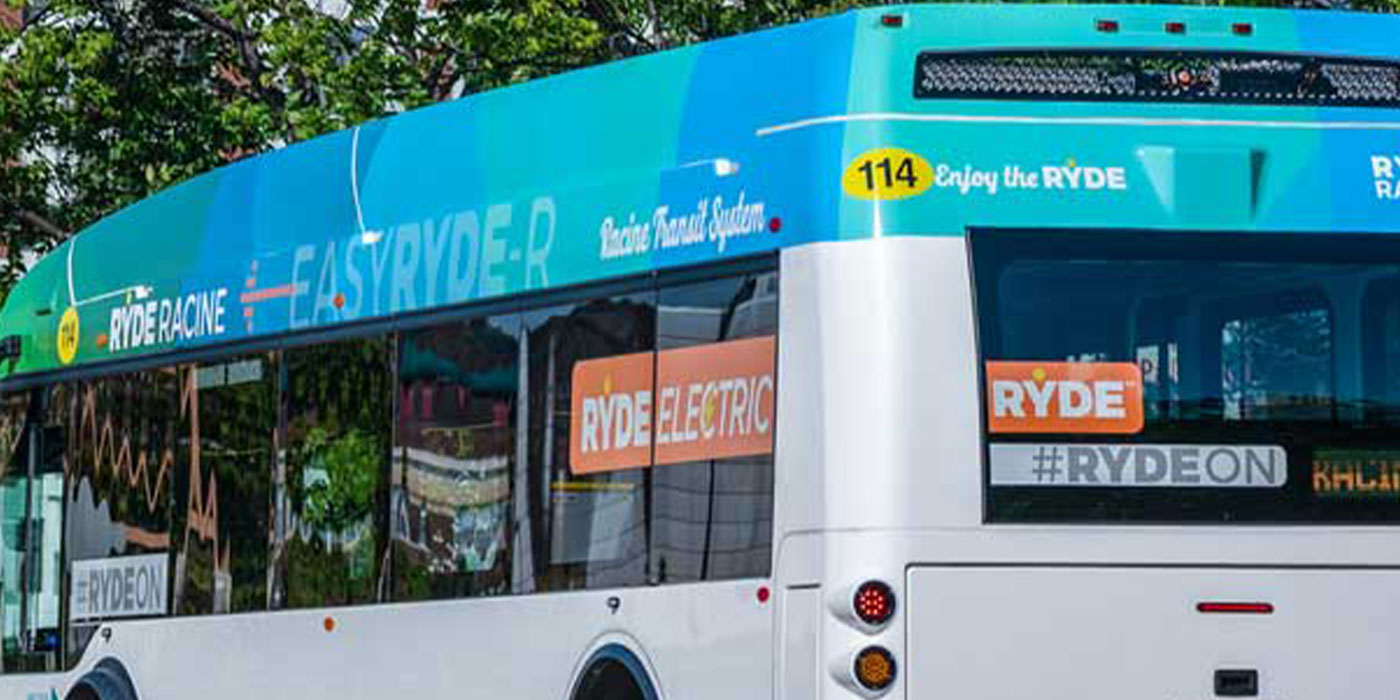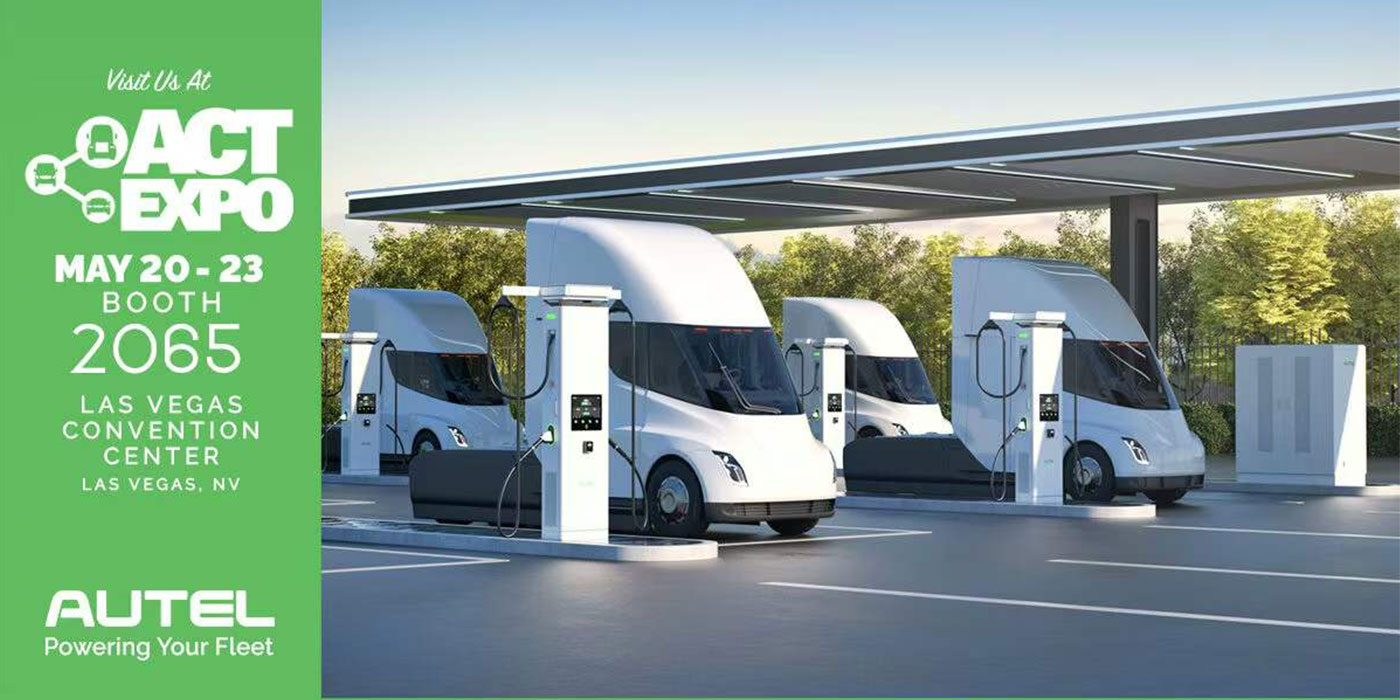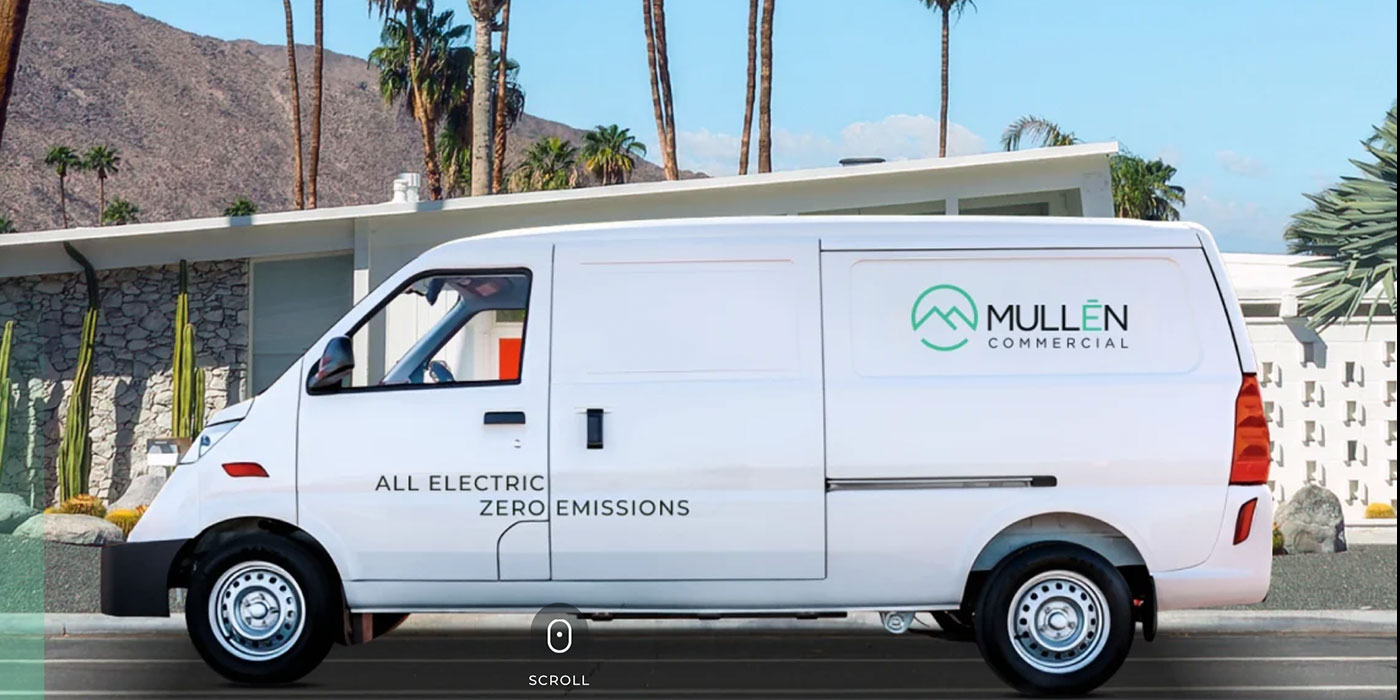Mullen Automotive, Inc. announced the development of a zero emissions version of PowerUP, Mullen’s mobile EV charging solution, that will now be offered on the Company’s own Class 3 all-electric cab chassis truck.
Mullen’s PowerUP was first introduced in July 2023 as a mobile EV charging truck delivering level 2 and level 3 DC fast charging capabilities in scenarios where such power is not available, including roadside assistance and emergency response where immediate power is required for recharging electric vehicles or emergency power backup.
The new zero-emissions PowerUP mobile charging truck represents a strategic pivot from the previously announced model which utilized a gasoline Class 5 cab chassis platform and a dual-fuel (propane/natural gas) power generation unit, according to Mullen Automotive. This shift to a 100% zero-emission model reflects Mullen’s “commitment to sustainable transportation solutions and aligns with the overwhelming market demand for zero-emission options in the mobile EV charging space,” the company added.
Now available with multiple platform integration and scaling options including the Mullen THREE Class 3 cab chassis truck, the zero-emissions PowerUP system also offers significant improvements in charging capabilities and versatility, said Mullen. The zero-emissions mobile charging solution is intended to be a scalable battery platform that can be configured to meet various market needs, ranging from 10kW to 1MW and can utilize new or re-purposed battery cells. It features Level 3 DC fast charging, off-grid AC power, and micro-grid connectivity, making it suitable for multiple applications.
An additional significant advantage of the battery powered PowerUP is quiet operation with minimal noise pollution, unlike traditional fossil fuel powered generators. This benefit makes it ideal for use in noise-sensitive environments like urban centers, hospitals, parking garages, campuses and even residential areas.

